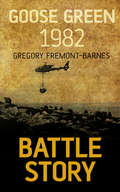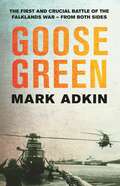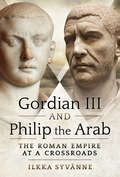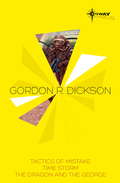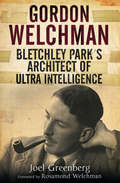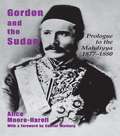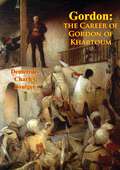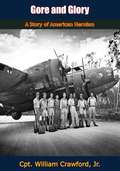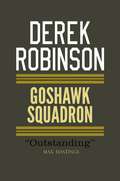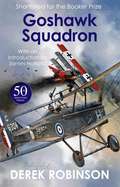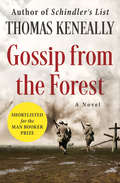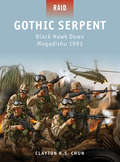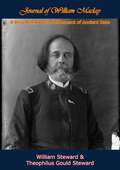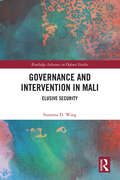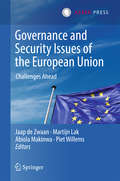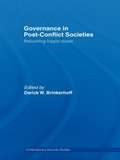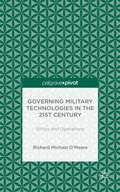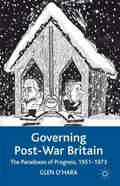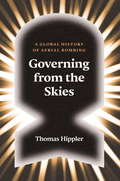- Table View
- List View
Goodnight Sweetheart: a romantic wartime novel encompassing both love and tragedy from bestselling author Charlotte Bingham
by Charlotte BinghamExciting and dramatic but tender and heartfelt; this is a novel that you will return to again and again. From the million copy and Sunday Times bestselling author Charlotte Bingham, for fans of Louise Douglas and Dinah Jeffries.'A novel rich in dramatic surprises... will have you frantically turning the pages.' - DAILY MAIL 'One of Britain's most bankable novelists.' - THE DAILY EXPRESS 'I laughed and cried at this tale, could visualise the characters, scenery and the story' - ***** Reader Review'Great book, grabs you on the first page' - ***** Reader Review********************************************************************A WARTIME BETRAYAL STRAIGHT TO THE HEARTAs Walter Berrisford paints beautiful Katherine Garland, she asks him to put a ladybird on her finger without his knowing why. He is appalled when he discovers that Katherine is a Nazi.The outbreak of war means that everyone must contribute to the war effort: her sister Caro and her friend Robyn join the FANYs, while former maids, Betty and Trixie, work in a factory.War brings frantic romance to all, including their flatmate Edwina O'Brien, but it is Betty, transferred to decode at Bletchley Park who discovers the truth about the Ladybird...
Goose Green 1982
by Gregory Fremont-BarnesThe Battle of Goose Green was the first major land conflict of the Falklands War. The Battle for Goose Green has become an integral part of the Falklands story, and yet it nearly didn’t take place at all. Originally earmarked to be isolated, Goose Green was eventually attacked due to the loss of momentum in the invasion force. The British 2 Para Regiment were deployed against the 12th Argentinean Regiment, which numbered about 1,200 men. The British believed that the Argentinean force numbered at least half this and set off with a strength of 690 men. They took two days’ rations, weapons, and ammunition in the belief that it would be a swift conquest. There followed a bitter and bloody fight as the Argentine forces fiercely defended Goose Green. Despite reconnaissance, the British were hampered by trench systems that they had been unaware of. Eventually the Argentines were forced to surrender, with 961 men captured, 145 taken prisoner during the fighting, and 47 killed. It was the first major engagement of the Falklands War.
Goose Green: The first crucial battle of the Falklands War
by Mark AdkinReissued for the 40th anniversary of the Falklands conflictThe most in-depth and powerful account yet published of the first crucial clash of the Falklands war - told from both sides.'Thorough and exhaustive' Daily Telegraph'An excellent and fast paced narrative' Michael McCarthy, historical battlefield guideGoose Green was the first land battle of the Falklands War. It was also the longest, the hardest-fought, the most controversial and the most important to win. What began as a raid became a vicious, 14-hour infantry struggle, in which 2 Para - outnumbered, exhausted, forced to attack across open ground in full daylight, and with inadequate fire support - lost their commanding officer, and almost lost the action.This is the only full-length, detailed account of this crucial battle. Drawing on the eye-witness accounts of both British and Argentinian soldiers who fought at Goose Green, and their commanders' narratives, it has become the definitive account of most important and controversial land battle of the Falklands War. A compelling story of men engaged in a battle that hung in the balance for hours, in which Colonel 'H' Jones' solo charge against an entrenched enemy won him a posthumous V.C., and which for both sides was a gruelling and often terrifying encounter.
Goose Green: The first crucial battle of the Falklands War
by Mark AdkinReissued for the 40th anniversary of the Falklands conflictThe most in-depth and powerful account yet published of the first crucial clash of the Falklands war - told from both sides.'Thorough and exhaustive' Daily Telegraph'An excellent and fast paced narrative' Michael McCarthy, historical battlefield guideGoose Green was the first land battle of the Falklands War. It was also the longest, the hardest-fought, the most controversial and the most important to win. What began as a raid became a vicious, 14-hour infantry struggle, in which 2 Para - outnumbered, exhausted, forced to attack across open ground in full daylight, and with inadequate fire support - lost their commanding officer, and almost lost the action.This is the only full-length, detailed account of this crucial battle. Drawing on the eye-witness accounts of both British and Argentinian soldiers who fought at Goose Green, and their commanders' narratives, it has become the definitive account of most important and controversial land battle of the Falklands War. A compelling story of men engaged in a battle that hung in the balance for hours, in which Colonel 'H' Jones' solo charge against an entrenched enemy won him a posthumous V.C., and which for both sides was a gruelling and often terrifying encounter.
Gorbachev And His Generals: The Reform Of Soviet Military Doctrine
by William C. GreenThis book investigates the debate over Soviet military doctrine and changes in civil-military relations in the Soviet Union since 1985. One of Gorbachev's greatest challenges is to apply "new thinking" to the military sphere. Under this rubric such phrases as "reasonable sufficiency", and "reliable defence" are used by Soviet military leadership to
Gordian III and Philip the Arab: The Roman Empire at a Crossroads
by Ilkka SyvänneThis is a dual biography of the emperors Marcus Antonius Gordianus (‘Gordian III’, reigned 238-244) and Marcus Julius Philippus Augustus (‘Philip the Arab’, reigned 244-249), focusing mainly on the political and military events during this crucial stage of the ‘Third Century Crisis’. The tumultuous 'Year of the Six Emperors' saw Gordian raised to the purple at just thirteen years of age, becoming the youngest emperor in the Empire’s history at a time when the borders were threatened by the powerful Sassanid Persians and the Goths, among others. Gordian died on a campaign against the Persians, either in battle or possibly murdered by his own men. Philip, succeeded Gordian, made peace with Shapur I and returned to Italy. His reign encompassed the spectacular celebration of Rome’s millennium in 248 but the wars in the Balkans and East together with crippling taxation led to mutinies and rebellions. Philip and his brother had until then fought successfully against the Persians and others but this did not save Philip, who was killed by a usurper’s forces at the Battle of Verona in 249. He had been Rome’s first Christian emperor and the author considers why it was fifty years before she had another.
Gordon R Dickson SF Gateway Omnibus: Tactics of Mistake, Time Storm, The Dragon and the George
by Gordon R DicksonFrom The SF Gateway, the most comprehensive digital library of classic SFF titles ever assembled, comes an ideal sample introduction to Gordon R. Dickson, one of the fathers of military space opera. Unusually, Dickson is as well known for his fantasy as his SF and has been decorated with the Hugo, Nebula and British Fantasy awards accordingly. He has also been short-listed for the World Fantasy Award. This omnibus showcases that versatility, containing the Dorsai! novel Tactics of Mistake, Hugo nominee Time Storm and British Fantasy Award-winner The Dragon and the George.
Gordon Welchman: Bletchley Park's Architect Of Ultra Intelligence
by Joel GreenbergA magnificent biography which finally provides recognition to one of Bletchley’s and Britain’s lost heroes Michael Smith. The Official Secrets Act and the passing of time have prevented the Bletchley Park story from being told by many of its key participants. Here at last is a book which allows some of them to speak for the first time. Gordon Welchman was one of the Park’s most important figures. Like Turing, his pioneering work was fundamental to the success of Bletchley Park and helped pave the way for the birth of the digital age. Yet, his story is largely unknown to many. His book, The Hut Six Story, was the first to reveal not only how they broke the codes, but how it was done on an industrial scale. Its publication created such a stir in GCHQ and the NSA that Welchman was forbidden to discuss the book or his wartime work with the media. In order to finally set the record straight, Bletchley Park historian and tour guide Joel Greenberg has drawn on Welchman’s personal papers and correspondence with wartime colleagues which lay undisturbed in his son’s loft for many years. Packed with fascinating new insights, including Welchman’s thoughts on key Bletchley figures and the development of the Bombe machine, this is essential reading for anyone interested in the clandestine activities at Bletchley Park. As seen in the Kent and Sussex Courier, Dover Express, Folkestone Herald, Sevenoaks Chronicle, M.K. Pulse Magazine, The Vine Magazine and Vale Life Magazine.
Gordon and the Sudan: Prologue to the Mahdiyya 1877-1880
by Alice Moore-HarellThis is a study on the period preceding the Mahdist revolution in the Sudan. It analyses the administration and political developments under the governor-generalship of Gordon.
Gordon: the Career of Gordon of Khartoum
by Demetrius Charles Boulger“A great British soldierThis is the biography of one of the most famous soldiers of the Victorian age—Major-General Charles Gordon. Certainly he is now known as Gordon of Khartoum, but highly regarded in his own lifetime, he was to many also Chinese Gordon and Gordon Pasha. Commissioned as a Royal Engineer, Gordon first saw action during the Crimean War taking part in the siege of Sebastopol, the assault on the Redan and the expedition to Kinburn. In 1860 the Second Opium War broke out in China and it was here and during the Taiping Rebellion that Gordon earned his reputation and the recognition that set him towards high military rank. But it was Africa where he achieved his greatest fame. Gordon was engaged in much vital and interesting service before he found himself behind the walls of Khartoum in an unequal struggle against the religious fervour of the Mahdist forces. This is a thorough account of the man and his times which will be of great interest to those who wish to learn more about Gordon than just his martyrdom in the Sudan.”-Print ed.
Gore and Glory: A Story of American Heroism
by Cpt. William Crawford Jr.“This daring pilot’s narrative is a straight-forward account of his exploits and experiences in the far-flung Pacific, spellbinding in its drama, pathos and breath-taking thrills. May it inspire many others to follow in his footsteps.“Gore and Glory is the story of Young America...out to do or die.”—CHARLES WAYNE KERWOOD, Lieut.-Colonel, Chief Special Liaison Section, United States Army Air ForceFirst published in 1944, this is the true story of Captain William Crawford, Jr. and his graphic experiences as a United States Army Air Force pilot of a Flying Fortress during World War II in the Pacific, the battle of the Bismarck Sea, the assault on Rabaul, and the Papuan campaign in New Guinea, among others.Richly illustrated throughout with photographs.An unmissable World War II aviation read.
Goshawk Squadron
by Derek RobinsonKnown for his black humor and expertise in military aviation, Derek Robinson is best renowned for his novels on the Royal Flying Corps. The Goshawk Squadron was shortlisted for the Booker Prize. World War One pilots were the knights of the sky, and the press and public idolised them as gallant young heroes.At just twenty-three, Major Stanley Woolley is the old man and commanding officer of Goshawk Squadron. He abhors any notion of chivalry in the clouds and is determined to obliterate the decent, gentlemanly outlook of his young, public school-educated pilots--for their own good.But as the war goes on he is forced to thrown greener and greener pilots into the meat grinder. Goshawk Squadron finds its gallows humor and black camaraderie no defense against a Spandau bullet to the back of the head.
Goshawk Squadron
by Derek RobinsonWorld War One pilots were the knights of the sky, and the press and public idolised them as gallant young heroes. At just twenty-three, Major Stanley Woolley is the old man and commanding officer of Goshawk Squadron. He abhors any notion of chivalry in the clouds and is determined to obliterate the decent, gentlemanly outlook of his young, public school-educated pilots - for their own good. But as the war goes on he is forced to throw greener and greener pilots into the meat grinder. Goshawk Squadron finds its gallows humour and black camaraderie no defence against a Spandau bullet to the back of the head.
Goshawk Squadron
by Derek RobinsonWorld War One pilots were the knights of the sky, and the press and public idolised them as gallant young heroes. At just twenty-three, Major Stanley Woolley is the old man and commanding officer of Goshawk Squadron. He abhors any notion of chivalry in the clouds and is determined to obliterate the decent, gentlemanly outlook of his young, public school-educated pilots - for their own good. But as the war goes on he is forced to throw greener and greener pilots into the meat grinder. Goshawk Squadron finds its gallows humour and black camaraderie no defence against a Spandau bullet to the back of the head.
Gossip from the Forest: A Novel
by Thomas KeneallyA gripping reimagining of the drama, ego, intrigue, and madness at work during the World War I armistice negotiations In November 1918, after four long years of murderous conflict, six men gather in a railroad car in a secluded forest outside Paris, France, to negotiate an end to World War I. A pacifist, left-leaning diplomat with no military knowledge or experience, Matthias Erzberger has been selected by the German high command to represent their surrendering nation, for reasons as baffling to him as to anyone. He is joined by France's aging, vindictive Marshal Foch and Britain's unbending Admiral Wemyss in an attempt to bring peace to a war-torn world. In these claustrophobic quarters the future is to be decided by men driven by ego, prejudice, fear, exhaustion, vengeance, delusion, and, in Erzberger's case, conscience. But the well-meaning diplomat's futile efforts to secure lenient surrender terms will have devastating consequences for Europe, the Fatherland, and Erzberger himself. Renowned for his enthralling fictional accounts of historical events, award-winning author of Schindler's List Thomas Keneally once again brings the heart-stopping human drama of history to life, as he brilliantly envisions the earth-shattering events that transpired in the forest of Compiègne, setting the stage for the Treaty of Versailles and the rise of the Third Reich.
Gothic Serpent - Black Hawk Down Mogadishu 1993
by Johnny Shumate Clayton ChunThe United States had demonstrated its military superiority worldwide with its lightning victory over Iraq in 1991. As the only superpower in the world, few would argue that Washington could not prevail in a conventional conflict. Humanitarian missions, however, were another story. Although the United States had experience in a few humanitarian missions, it had just concluded operations in northern Iraq, and was soon to support the United Nations program to help the people in a failed state - Somalia. Somalia was falling apart; it had ceased to exist as a country. Warring tribes had reduced it into an area controlled by warlords. Clan and internecine warfighting had caused major disruption in Somali life. Starvation was a weapon used by the clans. Humanitarian aid and relief arrived but, without security, this support provided little help to the people. On 15 August 1992, President George H.W. Bush ordered military units to airlift supplies into Kenya under Operation Provide Relief. These supplies would enter Somalia with international relief organizations. Still, clans stole the aid for themselves, harassed international relief agencies, extorted money, and allowed starvation to continue. By 8 December, Bush ordered Marines, the US Army's 10th Mountain Division, and Special Forces into Somalia to help UN forces bring order. Some 13,000 American military personnel became part of a security force of 38,000 from UN countries. This massive force helped stabilize Somalia, but the warring factions waited for an opportunity to reassert themselves. By October 1993, the UN security force had shrunk to 16,000, with 4,000 Americans. Two Somali warlords - Muhamed Farrah Aideed and Ali Mahdi Mohamed - had been fighting over control of the capital and main port of Mogadishu. A raid on 3 October, TF Ranger's seventh, aimed at capturing high-ranking Aideed aides initially succeeded with a surprise assault in Mogadishu. While transferring the prisoners to a convoy, Aideed supporters shot down two Army Blackhawk helicopters. These actions resulted in heavy firefights throughout the route of evacuation and the crash sites. The Rangers and others, including two Special Forces snipers who held the second crash site alone, attempted to secure and rescue the downed helicopter crews. The Americans could call on helicopter gunships and had heavy firepower, but against an enemy difficult to identify, in an urban setting, outnumbered, and with darkness approaching, the situation looked grim. The Rangers and Special Forces (Delta Force) fought all night. The10th Mountain Division, Malaysian, and Pakistani forces rescued the Rangers at the first crash site the next day. At the second crash site, Aideed's forces had overwhelmed the area. The two Special Forces snipers died (they received the Congressional Medal of Honor posthumously). In the end, TF Ranger lost 16 killed and 83 wounded. One person died from the relief column. Aideed's force lost 500-1,000 killed and unknown numbers of wounded.
Gough Whitlam: A Moment In History
by Jenny HockingThis moment was not his alone, nor could it ever have come about without him . Gough Whitlam turned to Graham Freudenberg, touched him lightly on the shoulder, saying, 'It's been a long road, Comrade, but we're there', and walked out to meet the spotlight. Acclaimed biographer Jenny Hocking's Gough Whitlam: A Moment in History is the first contemporary and definitive biographical study of the former Labor Prime Minister. From his childhood in the fledging city of Canberra to his first appearance as Prime Minister (playing Neville Chamberlain), to his extensive war service in the Pacific and marriage to Margaret, the champion swimmer and daughter of Justice Wilfred Dovey, the biography draws on previously unseen archival material, extensive interviews with family and colleagues, and exclusive interviews with Gough Whitlam himself. Hocking's narrative skill and scrupulous research reveals an extraordinary and complex man whose life is, in every way, formed by the remarkable events of previous generations of his family, and who would, in turn, change Australian political and cultural developments in the twentieth century.
Gouldtown: A Very Remarkable Settlement of Ancient Date
by William Steward Theophilus Gould Steward“Studies of Some Sturdy Examples of the Simple Life, Together with Sketches of Early Colonial History of Cumberland County and Southern New Jersey and Some Early Genealogical Records”-Subtitle.Gouldtown, in Cumberland County, New Jersey, has a rare and remarkable history of Free African American success and diversity. In this early-20th century volume, the history and genealogy of the famous Gould family is recounted in exceptional detail.
Governance and Intervention in Mali: Elusive Security (Routledge Advances in Defence Studies)
by Susanna D. WingThis book provides the historical and political context for the security interventions in Mali over the past three decades.The work contextualizes external military engagement (including that of the United States, France, the United Nations and G5 Sahel) within the broader framework of weak democratic consolidation, unmet development goals and increasing popular perceptions of widespread corruption in Mali. Over the past three decades, there have been four military coups in Mali: the military coup in 1991 launched the Third Republic; the 2012 coup toppled elected President Touré; the 2020 coup overthrew the elected President Keita; and the coup within a coup that ousted transitional President Bah. Given the political context, how do multiple international interventions relate to insecurity and instability in the country? Drawing on the author’s thirty years of research on Mali, this work examines the relationship between external intervention in the country, domestic actors, and decentralization policies. The book argues that external support has ignored the poor governance that is at the heart of the country’s crises.This book will be of much interest to students of intervention and statebuilding, African politics and International Relations in general.
Governance and Security Issues of the European Union
by Jaap De Zwaan Martijn Lak Abiola Makinwa Piet WillemsAt present, Europe is confronted with a number of serious common and global challenges, the most important being the economic crisis, migration issues, geopolitical tensions at its external borders, terrorism, as well as climate change and environmental challenges. These developments have a huge impact on the stability and security of the continent as a whole and on each individual European country. Europe, more particularly the European Union, has to organise its governance and security infrastructure in such a way that it can cope with these global threats. This book collects a number of topics and themes connected to the governance and/or security dimensions of EU co-operation. The Parts of the book deal respectively with: the values and general principles of EU co-operation; institutional aspects of EU co-operation; a number of individual policy domains; areas of European criminal law; the external relations of the EU; and the future functioning of EU co-operation as a whole.
Governance in Post-Conflict Societies: Rebuilding Fragile States (Contemporary Security Studies)
by Derick W. BrinkerhoffForeword Frederick D. Barton Preface Derick W. Brinkerhoff 1. Governance Challenges in Fragile States: Re-Establishing Security, Rebuilding Effectiveness, and Reconstituting Legitimacy Derick W. Brinkerhoff Part 1. Governance and Post-conflict: Perspectives on Core Issues 2. Does Nation Building Work? Reviewing the Record Arthur A. Goldsmith 3. Constitutional Design, Identity and Legitimacy in Post-Conflict Reconstruction Aliza Belman Inbal and Hanna Lerner 4. Election Systems and Political Parties in Post-Conflict and Fragile States Eric Bjornland, Glenn Cowan, and William Gallery 5. Democratic Governance and the Security Sector in Conflict-affected Countries Nicole Ball Part 2. Actors in Governance Reconstruction: Old, New, and Evolving Roles 6. From Bullets to Ballots: The U.S. Army Role in Stability and Reconstruction Operations Tammy S. Schultz and Susan Merrill 7. The Private Sector and Governance in Post-Conflict Societies Virginia Haufler 8. Rebuilding and Reforming Civil Services in Post-Conflict Societies Harry Blair 9. Contributions of Digital Diasporas to Governance Reconstruction in Fragile States: Potential and Promise Jennifer M. Brinkerhoff Part 3. Reforming and Rebuilding Governance: Focus on the Local 10. Decentralization, Local Governance, and Conflict Mitigation in Latin America Gary Bland 11. Subnationalism and Post-conflict Governance: Lessons from Africa Joshua B. Forrest 12. Subnational Administration and State Building: Lessons from Afghanistan Sarah Lister and Andrew Wilder About the Contributors Index
Governance, Natural Resources and Post-Conflict Peacebuilding (Post-Conflict Peacebuilding and Natural Resource Management)
by Carl Bruch Carroll Muffett Sandra S. NicholsWhen the guns are silenced, those who have survived armed conflict need food, water, shelter, the means to earn a living, and the promise of safety and a return to civil order. Meeting these needs while sustaining peace requires more than simply having governmental structures in place; it requires good governance. Natural resources are essential to sustaining people and peace in post-conflict countries, but governance failures often jeopardize such efforts. This book examines the theory, practice, and often surprising realities of post-conflict governance, natural resource management, and peacebuilding in fifty conflict-affected countries and territories. It includes thirty-nine chapters written by more than seventy researchers, diplomats, military personnel, and practitioners from governmental, intergovernmental, and nongovernmental organizations. The book highlights the mutually reinforcing relationship between natural resource management and good governance. Natural resource management is crucial to rebuilding governance and the rule of law, combating corruption, improving transparency and accountability, engaging disenfranchised populations, and building confidence after conflict. At the same time, good governance is essential for ensuring that natural resource management can meet immediate needs for post-conflict stability and development, while simultaneously laying the foundation for a sustainable peace. Drawing on analyses of the close relationship between governance and natural resource management, the book explores lessons from past conflicts and ongoing reconstruction efforts; illustrates how those lessons may be applied to the formulation and implementation of more effective governance initiatives; and presents an emerging theoretical and practical framework for policy makers, researchers, practitioners, and students. Governance, Natural Resources, and Post-Conflict Peacebuilding is part of a global initiative to identify and analyze lessons in post-conflict peacebuilding and natural resource management. The project has generated six books of case studies and analyses, with contributions from practitioners, policy makers, and researchers. Other books in this series address high-value resources, land, water, livelihoods, and assessing and restoring natural resources.
Governing Military Technologies in the 21st Century: Ethics and Operations
by Richard Michael O’mearaGoverning Military Technologies in the 21st Century is one of the first books to tackle the big five technological threats all in one place: nanotech, robotics, cyberwar, human enhancement, and, non-lethal weapons, weaving a historical, legal, and sociopolitical fabric into a discussion of their development, deployment, and, potential regulation.
Governing Post-War Britain: The Paradoxes of Progress, 1951–1973
by Glen O’HaraGlen O'Hara draws a compelling picture of Second World War Britain by investigating relations between people and government: the electorate's rising expectations and demands for universally-available social services, the increasing complexity of the new solutions to these needs, and mounting frustration with both among both governors and governed.
Governing from the Skies: A Global History of Aerial Bombing
by Thomas HipplerThe history of the war from the past one hundred years is a history of bombingEver since its invention, aviation has embodied the dream of perpetual peace between nations, yet the other side of this is the nightmare of an unprecedented deadly power. A power initially deployed on populations that the colonizers deemed too restive, it was then used to strike the cities of Europe and Japan during World War II.With air war it is now the people who are directly taken as target, the people as support for the war effort, and the sovereign people identified with the state. This amounts to a democratisation of war, and so blurs the distinction between war and peace.This is the political shift that has led us today to a world governance under United States hegemony defined as 'perpetual low-intensity war', which is presently striking regions such as Yemen and Pakistan, but which tomorrow could spread to the whole world population.Air war thus brings together the major themes of the past century: the nationalization of societies and war, democracy and totalitarianism, colonialism and decolonization, Third World-ism and globalization, and the welfare state and its decline in the face of neoliberalism. The history of aerial bombing offers a privileged perspective for writing a global history of the twentieth century.From the Hardcover edition.

